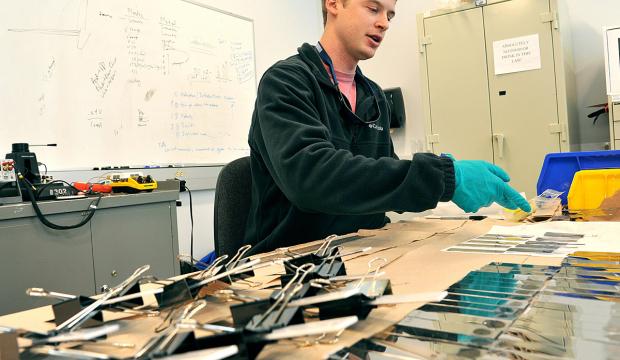Experts have successfully created a provisional glue which could now benefit people experiencing significant eye injuries valuable time in the course of pursuing urgent surgical treatment. Created at the University of Southern California (USC), the sealant is considered to be a possible sight messiah especially for armies who suffer painful injuries to the eye by explosives. Expectedly the hydrogel could be used to avert vision retrogression in situations where complete treatment is not obtainable.
The provisional solution, which changes from a liquid to almost a solid when used, is capable of efficiently blocking cuts to the eyeball. Having achieved success on its test on rabbits, the gel was injected through a syringe which was discovered to safeguard the eyeball with no injury, infection nor other harm, this is in accordance with a Science Translational Medicine journal study.
The gel contains substance usually utilised as a part of retinal implants, the visual sealant turns liquid once cooled and almost solid paste if heated. This implies that the liquid binds whenever it is in contact with body warmth, therefore it can be detached using low-temperature water.
Because of its framework, a unique, convenient syringe with chilling calcium ammonium nitrate crystals was created to facilitate its use in delicate circumstances. One of the leading authors of the new research paper, Niki Bayat of the USC Viterbi School, held that the first initial embodiment as an eye embed glue was not entirely apt.
So a couple of adjustment had to be made to achieve the final result. He stated that “Given the first hydrogel’s change temperature was near the temperature of the eye of a human, we needed to adjust its properties to guarantee it would frame a strong seal once the hydrogel was used for the eye, either by a soldier or a medical personnel,”
“Offering such a unique, though reversible seal, the hydrogel represents a great milestone for tissue adhesives for generations to come.” Also, the hydrogel could be used someday as a treatment for wounds from gunshots. As indicated by a colleague researcher John Whalen.
He said. “The hydrogel could indeed be helpful in ERs in local neighbourhoods that don’t have an eye centre with adequate facilities close at hand.”





















